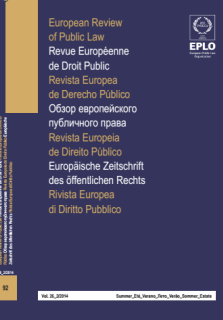
LA LÉGITIMATION DE L'ACTION ADMINISTRATIVE
GÉRARD TIMSIT
Professeur émérite à l'Université Paris I (Panthéon-Sorbonne)
This study builds on the rereading of Weber that renders legitimization a complex process by associating legitimacy claims of different origins, some - the "belief in legality" - originating from members of the community and others - the "claim of legitimacy" - from the state body which develops the legal regulation governing the functioning of the community. In doing so, and replacing, as Weber himself does, the normative system in the center of the legitimization process, the study intends to account for the movement by means of which - beyond traditional ways of indirect legitimization, deriving from the administration, through the subordination of the administration to a single elected political power -, arise new modes of legitimization in which the administration seeks to anchor its legitimacy directly in citizens. It is in that double perspective that the transformation of modes of consent towards administrative action - a shift from an exogenous consent towards an endogenous one - and the scope of modes of treatment of regulation - a solely "procedural" treatment, or a more complete and "dialogical" one - aiming at obtaining citizens' consent are successively analyzed.
Cette étude prend appui sur les relectures de Weber qui font de la légitimation un procès complexe associant des prétentions à la légitimité d'origines différentes, émanant les unes - la "croyance à la légalité" - des membres de la collectivité, les autres - la "revendication de légitimité" - de celle des instances étatiques qui élabore la réglementation juridique régissant le fonctionnement de la collectivité. Ce faisant, et replaçant, comme le fait Weber lui-même, le système normatif au centre du procès de légitimation, elle se propose de rendre compte du mouvement par lequel - au-delà des modes classiques de légitimation indirecte et dérivée de l'administration, par subordination de l'administration à un pouvoir politique seul élu -, émergent de nouveaux modes de légitimation dans lesquels l'administration cherche à ancrer sa légitimité directement auprès des administrés. C'est dans cette double perspective que sont analysées successivement la transformation des modes de consentement à l'action de l'administration - passage d'un consentement exogène à un consentement endogène - et la portée des modes de traitement de la réglementation - traitement seulement "procédural", ou plus complet et "dialogal" - visant à recueillir le consentement des administrés.





















